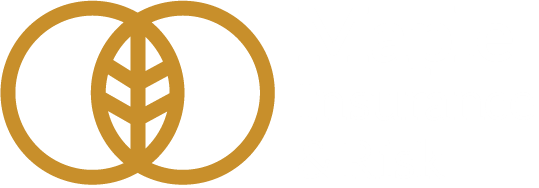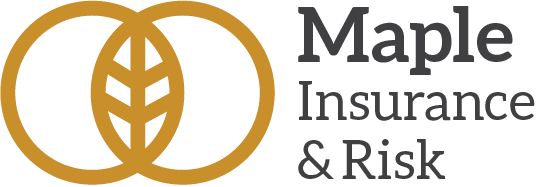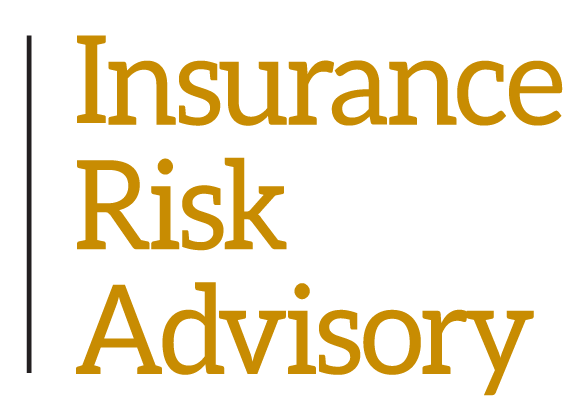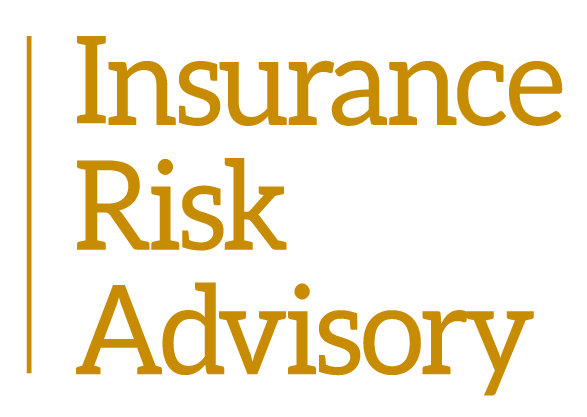Insurance solutions
We maintain a relationship with over 100 insurers across all key insurance markets throughout the world. No matter the size of your business or the difficulty of the risk and placement, our relationships allow us to negotiate comprehensive cover, with financially secure insurers, at a competitive price. We are advice driven rather than sales driven and offer choice and value when designing, marketing, negotiating, and placing your insurance program. While price is always important, we believe value goes much further. It’s the sum of the depth of our relationships, the quality of advice and choice we offer.
Click below to jump to a specific section:
Property insurance (industrial special risks)
Cover for loss or damage to your physical business assets in the event of an incident occurring.
Property insurance, also known as industrial special risks, covers the material items of your business such as buildings, contents, stock, plant and machinery.
The policy normally covers a variety of insured perils, however there are various considerations to be made when selecting the right property insurance for your business. Some examples include:
- Has the occupancy and use of your premises been adequately disclosed to the insurer?
- Is your sum insured adequate? How have you determined your sum insured?
- Could you build somewhere else in the event of your property being destroyed?
- Are your contents covered inside the building and outside?
- Is accidental damage covered, and to what extent?
- Are your demolition and removal of debris costs covered?
Business interruption insurance
From your family and employees to customers and suppliers, there are a lot of people who depend on your business opening its doors each day. Business interruption insurance is designed to protect you – and them – from losses caused by an insured event or incident that forces you to close your premises for an extended period of time. It effectively returns your business to the same financial position it was in before the event occurred, allowing the quickest possible resumption of normal business.
It’s important to remember not all business interruption policy wordings are the same. Given inadequate cover could be crippling to you and your business, it’s vital to get it right. In particular, there are a variety of wordings and basis of settlements ranging from gross profit, gross revenue and contingent business interruption.
When deciding the best basis of cover for your business, things to consider include:
- Indemnity period – How long do you need the cover for? How long will it take your business to get back to pre-loss trading figures?
- Claims preparation fees – How much is going to be sufficient for your business to help you with a claims process?
- Payroll – Do you insure it, how much of it, and for what period of time?
- What happens in the event of a claim if your business is subject to seasonal fluctuations or economic cycles?
- Are you covered when your business is in growth mode?
- What happens if one of your customers or suppliers suffers damage from a significant peril and your business suffers as a result? Would you be covered?
- Uninsured working expenses – Are you paying for unnecessary cover that relates to expenses that would not exist in the event of a claim?
SME business insurance
Business insurance is used by many businesses, but it’s best suited to SME-type operators. It provides invaluable protection against a range of insured events, from equipment and assets to legal liability, reducing financial uncertainty and protecting your livelihood and your workforce in the event of an incident.
Business insurance policies typically allow you to select relevant sections of cover based on your individual needs, and then group them all together in one policy. It’s important to remember the sections of cover, and the cover itself, can vary considerably from insurer to insurer. Some of the more common sections you can expect to see in a standard business insurance policy include:
- Property damage – covering property damage to your business assets such as buildings, contents, stock and customers goods in the event of an insured incident.
- Business interruption – covers loss of profits in the event of a property damage claim.
- Burglary/theft – covering theft of goods from the insured premises.
- Money – covers theft of money in a variety of locations such as whilst on the premises during business hours, outside business hours, during transit, in a locked safe and even at private residences.
- Liability – covers legal liability for injury and/or damage caused to a third party.
- General property – covers portable property that you take away from your premises against material damage perils.
- Computer and electronic equipment – covers loss or damage to computer and/or electronic equipment.
Public and product liability insurance
Despite the very best of intentions, accidents can still happen in any business. Public and product liability insurance protects you against claims for personal injury or damage to a third party.
Today’s businesses are exposed to an ever-growing list of legal liabilities. As increasing globalisation makes the world and legal systems more complex, so does the process of ensuring your liability policy is broad enough to pick up all of the legal liabilities you’re potentially exposed to in the normal operation of your business.
Public liability insurance covers the cost of legal action and compensation claims made against your business if a third party is injured, or their property suffers damage whilst at your business premises or when you are working in their home, office or business. Your policy can include coverage such as:
- Public liability
- Products liability
- Advertising liabilities
- Care, custody & control exposures.
Crime insurance
Crime insurance protects your business from loss of money, securities, or inventory resulting from crime. Common fidelity insurance claims are a result of employee dishonesty, embezzlement, forgery, robbery, safe burglary, computer fraud, wire transfer fraud, counterfeiting, and other criminal acts.
These criminal activities involve every possible angle, taking advantage of any potential weakness in your company’s financial controls. From fictitious employees, dummy accounts payable, non-existent suppliers to outright theft of money, securities and property.
Because crime-related losses are not typically covered by most property insurance policies, crime protection insurance is a necessary component for any business.
Professional indemnity insurance
Professional indemnity (PI) insurance isn’t just limited to typical ‘professions’ such as accountants, engineers, lawyers, doctors and architects. Essentially, anybody providing advice or consultancy services for a fee has an exposure that needs to be considered. Even something as simple as providing casual advice about the use of a product, for example, could leave your business exposed.
Imagine if you accidentally breached your client’s privacy or confidentiality, missed out important information, made an error or provided incorrect advice. Any of these simple oversights could lead to a claim against your business, making it vital to protect yourself, your business and your reputation.
Another important consideration is the potential legal costs associated with defending any claim or allegation. The court and legal fees are often underestimated, and it can be especially difficult to fund this element of the claim, whilst also trying to keep your business running as normal.
Amongst other risks, PI insurance typically covers:
- Breach of duty – includes privacy related issues
- Defamation
- Breach of consumer, competition and fair trading
- Loss or damage to important documents
- Infringement of intellectual property
- Public relations costs – to assist with any reputational damage following a claim against your business
- Claim investigation costs – costs of investigating, defending and settling a claim.
Directors & Officers (D&O) / Management liability insurance
D&O insurance protects the personal assets of business owners and managers who run companies, as they are personally liable for any decision, action or inaction they make within the business.
Whilst your senior management and executives may make honourable decisions and actions, mistakes can still happen. Even if the individual in question has not acted improperly, the cost of investigating and then defending an allegation, which could prove to be unfounded, can be many thousands of dollars. It can also divert large amounts management time and effort, distracting them from their core business focus.
D&O insurance gives directors, managers and officers, both past or present, the peace of mind knowing they’re insured against legal costs as well as any penalties or damages that may result from a claim or investigation.
Typical claims that can be covered under these policies include HR and employment issues, breach of contract, decisions that exceed their authority, misrepresentation, inaccurate reporting, regulatory and legal non-compliance.
As a matter of course, directors, managers and officers usually make these types of decisions daily, so it pays to ensure they’re fully covered if any regulatory or legal claims or investigations are made against them.
One option to consider is a management liability (ML) policy. This packaged policy is designed specifically for SMEs to protect the individual directors and officers, as well as the company in relation to the exposures of managing a company.
Cyber insurance
Technology has never been so deeply entwined in our businesses. While it delivers significant efficiencies and convenience, it also comes with significant cyber risks. Many business owners don’t fully understand how their business could be attacked. While others think they don’t have a cyber exposure at all, due to their industry or size. The reality is anybody who collects data or uses a computer with the internet is at risk. Something as simple as an employee clicking on the wrong link, sending an email to the wrong person or using a corrupted website could leave your entire system exposed.
There are many types of cyber insurance now available. Some of the key inclusions to look for are listed below.
First party loss
- Incident response costs
- Business income loss
- Data restoration
- Breach response costs
- Notification costs
- Legal defence costs
- Cyber extortion
- Regulatory fines and penalties
- Payment card industry (PCI) fines, penalties and assessments
- Cyber reputational harm
Third party loss
- Security and privacy liability
Motor insurance
Policy provides coverage for physical loss, damage or theft to your vehicle. It can be extended to cover loss damage or injury to a third party.
Motor insurance comes in many forms. It can be provided for your own personal vehicle, or to cover company vehicles, vans, trucks and heavy goods vehicles.
Whether you have one vehicle or many, your policy can be tailored to cover your entire fleet, with various levels of comprehensive and third-party coverage able to be arranged.
Mergers & Acquisitions (M&A) insurance
Business sale and/or purchases can be exciting transactions, however, may leave you with unforeseen risks once completed.
We can provide a range of transaction insurance solutions to enhance the transaction or even allow for deal completion if there is a barrier.
Some of the transaction services and solutions we provide are due diligence reviews, warranty & indemnity insurance, tax liability insurance, environmental insurance, litigation insurance, contingent liability insurance and public offering/IPO insurance.
The benefits of mergers & acquisitions insurance:
- De-risks transactions by transferring the transactional risk to the insurance market.
- Limit exposures to both unknown and known liabilities.
- Enables a clean exit and allows for quicker returns to investors with less funds held in escrow.
- Provides distressed or dissolving sellers to exit their business.
Contract works insurance
Contract works insurance provides cover for any physical damage of works or third-party liabilities during construction stages of a project.
You’ll be protected from a range of loss events during construction, including:
- Material damage
- Third party liability for damage or injury
- Environmental liability for any environmental damage
- Advanced consequential loss/delay in start-up, covering financial loss for a delay in project work beginning.
Marine cargo & hull insurance
Do you operate a marine business and/or transport goods? Marine Insurance is designed to provide peace of mind when you have a ship or vessel that requires insurance, or you are moving cargo across sea, land or air.
A wide variety of marine insurance policies are available. Choosing the right one will help you tailor the best cover for your business. Some of the most common types of marine insurance include:
- Marine cargo insurance: designed for businesses that transport their goods across Australia or overseas by road, sea, air or train, even by post or courier. The policy covers your goods from point A to point B, whether inside Australia or internationally.
- Commercial hull insurance: designed specifically for businesses who operate commercial vessels where their vessels are the centre of their business (from charter vessels, barges, ferries etc). It covers accidental loss or damage to the vessel machinery or equipment. It is advised operators should consider both marine cargo and commercial hull insurance.
- Marine liability insurance: designed specifically for marine service providers, such as operators of a marina, stevedores, terminal operators, ship builders and ship repairers, docking facilities, piers and pier facilities. It provides protection to property damage and personal injury to a third party while engaged in marine-related activities.
Plant & equipment insurance
Plant & equipment insurance is important for a wide variety of businesses that rely on mobile plant and equipment to continue their business activities. It protects the equipment itself, but also the liabilities associated with its use, from portable tools and the smallest of earthmoving machines, to forklifts and the largest of cranes.
Policies typically cover for your plant and equipment against incidents such as damage, theft and breakdown. Some of the other key considerations include:
- Hired in plant equipment
- Material damage
- Road risk
- Automatic cover for newly acquired equipment.

Maple Insurance & Risk
Level 17, Angel Place
123 Pitt Street
Sydney NSW 2000
info@mapleinsurance.com.au
(02) 8329 0999
Site map
Maple Managed Risk Pty Ltd trading as Maple Insurance & Risk is a Corporate Authorised Representative of Insurance Advisernet Australia Pty Ltd. AFSL No. 240549.
Corporate Authorised Representative No. 1288279. Visit the Insurance Advisernet website.
Privacy | FSG | Disclaimer | Consumer Advice | Compliments & Complaints
Website by Businessary


